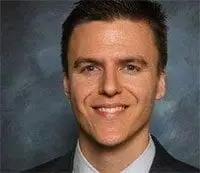Buying a stairway to heaven
A growing number of philanthropists are earmarking portions of their “get into heaven” money towards new investment vehicles offering perpetual impact in causes they believe in and that will build lasting legacies for their efforts. Daring to be different, these philanthropists subvert the dominant paradigm of contributing to long-standing charities in favor of new impact models. The evidence shows that these new models and vehicles often provide greater sustained and strategic impact.
Why does it still seem counter-intuitive to accept the familiar status quo charity model in favor of new models that achieve greater impact? Often, we learn faster by first unlearning what we once knew. Philanthropy is no exception. Combining compassion with business metrics for sustained success isn’t without its challenges, but properly applied, it can be impressive in its ability to fill the gaps of need – especially in areas of healthcare and medical innovation. While traditional donor models certainly have their place, new impact investments that use venture philanthropy to create perpetual returns are rapidly taking hold.
The old models of writing a cheque can only go so far in convincing patrons that their investment and donations are truly helping and healing to the fullest extent possible. The new collaborative models leverage new efficiencies – made possible by technology – with savvy venture philanthropy strategies that provide investors with metrics for combining their returns on investment with returns on mission in perpetuity.
Savvy philanthropic investors often incorporate business metrics with the understanding that investment can serve as a bridge to the “no margin, no mission” tension that investors and philanthropists alike wrestle with.
A 2013 Time Magazine article titled Philanthropists of the World: You’re Doing it Wrong! tackled the issues of impactful philanthropy. The article referenced 4th century B.C. Chinese Zen Master Chuang-Tzu who argued that most philanthropy is meant to further personal business or interests. It also quoted Eric Friedman, philanthropist and author of Reinventing Philanthropy who says that truly impactful charitable giving should involve critical thinking, better vetting, and more donor participation. According to Friedman, only 35% of donors perform any research, and only 9% do more than 2 hours of research before making a donation.
When Herb Sandler retired, he and his wife sold their savings and loan, made a large $1 billion donation to their foundation, and took it upon themselves to ensure that the foundation’s money went to good use. Sandler earmarked funds toward preserving some of the dying journalism industry’s traditions, such as watchdog reporting. His paper soon published an article exposing how a state system was not adequately handling how abusive nurses were dealt with. The next day, the state’s governor called Sandler and began to take steps to rectify the procedures that lead to the issues.
Sandler stated:
“There is no greater excitement in the world than making a grant to an institution that does something to change the lives of other people for the better. We want to have impact. We don’t want to do feel-good philanthropy. We want to do impactful philanthropy that affects the lives of large numbers of people and improves society in general.”
From evidence-based medicine to evidence-based venture philanthropy
Health care groups such as The Innovation Institute are further deploying impact models and investor funds with evidence-based success to deliver investor profits in two industries desperately in need of innovation: health care and philanthropy. The Innovation Institute’s model is driven by a powerful collaborative of like-minded organizations bringing together deep domain expertise and philanthropic dollars to create lasting humanitarian change. The net-net result of this approach is “more shots on goal” to create impact; the importance of which was brilliantly articulated by Wayne Gretzky who said, “You miss 100 percent of the shots you don’t take.”
In addition to leveraging a unique healthcare network and consortium, The Innovation Institute buttresses and insulates innovation by using a portfolio of profitable service companies to support inventors. This, combined with the full creativity, humility, discipline, determination, and a results-focused attitude toward solutions that The Institute embodies, allows for infinitely greater success.
The importance of venture philanthropy is that it raises the bar on what can and should happen, and it creates solutions and fuels innovation. Government isn’t going to be able to solve all of society’s problems, and neither are corporations. Investors play a vital role in generating impact and replacing traditional charity with the clarity of these new models that amplify the goodwill that charities deserve. Take for example paediatric medicine, an area many conventional investors have shied away from.
“It’s simply a numbers game and the numbers in paediatrics don’t provide ample return.”
This statement is simply not true and the numbers and ability to deploy solutions prove this. Paediatric innovations can now easily and affordably reach children worldwide, and make monumental impacts on many lives, while generating healthy returns on investment.
The next time you get the chance, consider your day-to-day purchases, investments, and the deployment of your own “getting into heaven” money, and consider the impacts of the new, proven solutions in venture philanthropy. Consider joining the new era of venture philanthropists delivering true good and better, lasting outcomes worldwide. You’ll be glad you did!
Barry Didato is Chief Investment Officer of The Innovation Institute, an organization of 450+ professionals structured to support healthcare innovators and health systems to grow and become a positive force to meet the needs of a rapidly changing global healthcare industry.

Ben Kempenich joined The Innovation Institute in 2016. He is a recent MBA graduate of UC Irvine’s Paul Merage School of Business. Ben has six years of experience in the financial services industry with expertise in equity research, bank operations, investments, and business development.
Advertisement




